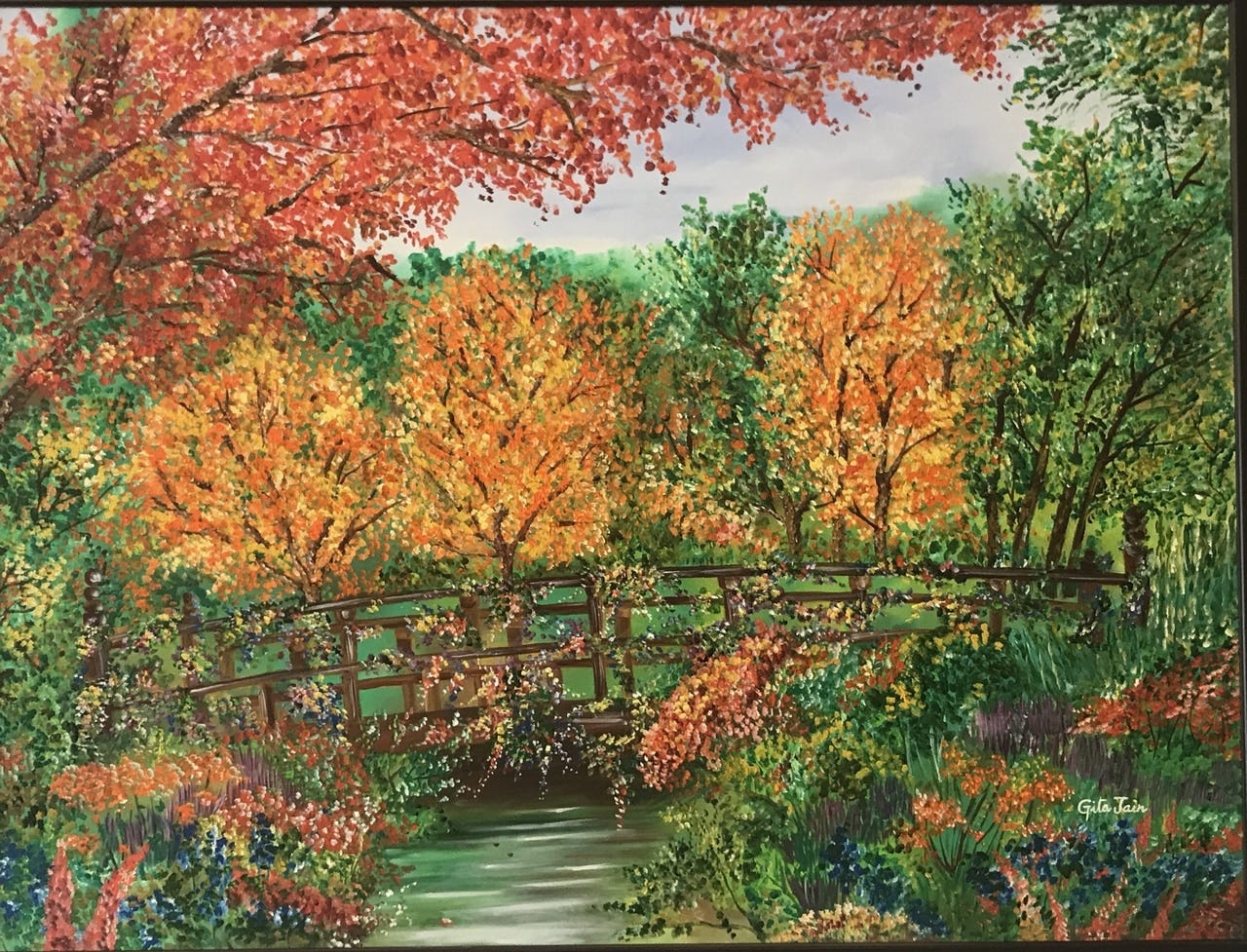#3: Sharing is Caring: Is Science Ignorance Rooted in a Disregard for Nature?
Rika's newsletter
Is Science Ignorance Rooted in a Disregard for Nature?
We know the following five truths about nature: nature is imperfect, nature is random, nature is non-linear and dynamic, nature is gradually evolving, and nature is always changing.
These five truths give rise to the 6th truth: nature is uncertain. We don’t know with certainty what the weather will be tomorrow, what a pendulum’s motion will be, or the turbulence of a flight. Uncertainty, also known as randomness, is a feature of nature. For example, you can pick up any two leaves outside, from the same tree, and notice that they’re both very different, or you can look at a computer generated image of coastlines and notice that the details are totally random, with no two coast lines being the exact same.
The irony is that we, as humans, artificially try to create certainty in our lives. The most obvious way we build in certainty is by making plans. We think we know what will happen in our lives, and in the world, and so we create a Plan A, a Plan B, and a Plan C, but actually end up using Plan D. By the way, there is an important distinction between creating a “plan” and “planning.” If you’ve ever worked at a startup, you’re familiar with the mantra, “ship fast, ship early.” Instead of crafting the perfect plan, you want to instead craft an imperfect plan, with space for lots of incremental changes. As. Dwight D. Eisenhower said,
In preparing for battle I have always found that plans are useless, but planning is indispensable.
Humans love to use heuristics, or shortcuts, to trick our brains into certainty. Daniel Kahneman, in his book Thinking, Fast and Slow, classifies these heuristics as our “System 1” brain. Our System 1 brain is full of biases and it’s gullible, so it loves to feed on certainty tricks. Some examples of certainty tricks are confirmation bias, where we only look for information that confirms our beliefs; sunk cost fallacy, where we are overly hesitant to cut our losses when things are going bad; and availability heuristic, where we notice things that are already primed in our memory or repeated often.
Some people use these heuristics so often that they become their only mental models, and this is dangerous, because this is when people start thinking conspiratorially and ignore science.
Why do people ignore science?
There are five reasons (although probably more) on why people ignore science:
Scientists start with uncertainty, with “I don’t know.” A scientist starts with a hypothesis and collects evidence that either proves or disproves her/his hypothesis.
Science doesn’t have all of the answers. Nature and humans continue to change and evolve, and our current understanding of the world and the cosmos keeps changing too.
Science journals are really hard to understand for the layperson. Scientific American is a magazine that focuses on bridging the gap between academia and the layperson, and more people should read it.
Science has a narrative problem. Humans think in terms of stories, and science has failed on delivering compelling stories.
The Internet has propagated conspiracy theories. Conspiracy theories try to provide certainty and order to an uncertain and random world. The gullible System 1 mind loves conspiratorial thinking because it is rooted on snap judgements and intuition.
What can we do?
We need to work on restoring trust, on helping people feel safe, and on building belonging. Safety, trust, and belonging, are low-level needs on Maslow’s hierarchy, and humanity won’t reach its full potential unless more people feel safe and like they belong.
As the Trump era ends, we can stop living in a world of cynical dystopian fiction, and start creating better, more hopeful, and more optimistic narratives that encourage collaboration over competition, abundance over scarcity, and dial down the obsessive focus on winning.
The good news is that plenty of people have already started building these narratives through art, literature, music, and movies; and all of us have a choice in what to believe; our attitude, just like our brain, is plastic, so let’s start working together to build a future that is rooted in nature, in science, in uncertainty, and in trust.
Stay healthy, and be well. Till next week. As always, I have some tunes down below.
References
Chaos: Making a New Science, by James Gleick
Thinking, Fast and Slow, by Daniel Kahneman
Naomi Klein: Against Dystopian Visions of the Future
Musica 🎺
Here are some fun, eclectic tunes for your weekend.
All of these are perfect for working or relaxing
Jan Jelinek, Loop Finding Jazz
Here’s an idea: Play some music while doing work, then turn the music off and bring attention to your environment. Notice how your thinking changes.



